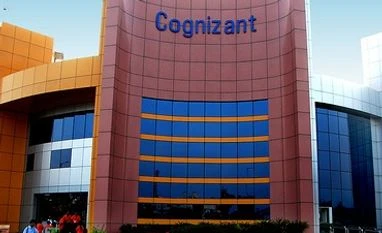The class action suit against Cognizant Technology Solutions and its Indian-origin CEO Francisco D’Souza in the district court of New Jersey has set alarm bells ringing in its India offices. The suit rests on two allegations – that Cognizant violated US anti-corruption laws by bribing its way to setting up facilities in India and that it lacked oversight on its own financial reports.
If the US authorities decide to launch a probe into Cognizant’s dealings, then all of its $184 million investments in real estate for its offices across India will be under the scanner.
If the US authorities decide to launch a probe into Cognizant’s dealings, then all of its $184 million investments in real estate for its offices across India will be under the scanner.
This can be a worry for Cognizant’s Indian employees for various reasons. Almost 80 per cent of the US multinational’s workforce, or roughly 1,90,000 information technology (IT) professionals, are based in India.
According to the company’s filings with the Securities & Exchange Commission (SEC), a majority of old employees quitting and new ones joining Cognizant across the world have done so in India.
Most of these employees are programming staff and professionals with advanced technical skills commanding high salaries by Indian standards. Additionally, according to its quarterly report submitted in August, Cognizant’s largest holdings of long-lived assets, including real estate, outside the US worth almost $980 million are in India.
Moreover, Cognizant’s Indian subsidiary has been in the thick of action after the parent company repurchased shares from other non-Indian subsidiaries worth $2.8 billion in May this year.
Even though Cognizant is not an Indian company, the repercussions of the class action suit, if any, are likely to be felt by its Indian employees. Cognizant’s revenue projections are lower than last year and the company has been struggling to retain old clients and acquire new ones in an ever-evolving digital market.
The class action suit against Cognizant is reminiscent of lawsuits filed against each one of the top four Indian IT companies operating in the US. India’s top four – Tata Consultancy Services (TCS), Infosys, Wipro and HCL – have all faced class action suits in the US. The Cognizant case differs in one major respect: it involves the allegation of financial misrepresentation.
In some ways Cognizant's class action suit is similar to the Satyam case. Like Satyam, the independent auditor in the Cognizant case is PricewaterhouseCoopers. Secondly, Satyam had to pay almost $140 million to various American shareholders in two separate class action suits for losses incurred by them owing to false financial reporting. The complaint filed by Rosen Law Firm against Cognizant for compensation to its shareholders rests on a similar contention.
In January this year, HCL along with Cognizant were slapped with a class action suit by two American workers. The allegation against them was that they provided low cost Indian immigrant workers to replace 250 sacked American workers at Disney.
The lawsuit alleges discrimination against American workers and abuse of the H1B visa programme that brings in thousands of low cost and highly skilled Indian IT workers to the US each year.
On October 13, a court in Florida ruled in Disney's favour. Precedents involving other Indian IT companies do not augur well for the current set of cases being fought in US courts.
In February 2013, TCS paid $30 million as settlement after a suit was filed by two of its employees alleging improper wage payments. In the same year, four American employees of Infosys filed a class action suit alleging discrimination in promotion and hiring by India’s second largest IT company.
The petitioners alleged that Infosys had been promoting workers of South Asian origin at the expense of their white counterparts. In a setback to Infosys in May 2015, a US court allowed the case to go into trial.
Wipro, India’s third largest IT company, was also dragged to court in a class action suit in March last year for not paying for work done by its employees. Both the cases are pending before US courts.
With Cognizant now facing allegations similar to Satyam in the US, the repercussions of an adverse ruling against the New Jersey-based IT major could well reverberate on the desks of over 100,000 employees working in its 10 offices across India.
The lawsuit alleges discrimination against American workers and abuse of the H1B visa programme that brings in thousands of low cost and highly skilled Indian IT workers to the US each year.
On October 13, a court in Florida ruled in Disney's favour. Precedents involving other Indian IT companies do not augur well for the current set of cases being fought in US courts.
In February 2013, TCS paid $30 million as settlement after a suit was filed by two of its employees alleging improper wage payments. In the same year, four American employees of Infosys filed a class action suit alleging discrimination in promotion and hiring by India’s second largest IT company.
The petitioners alleged that Infosys had been promoting workers of South Asian origin at the expense of their white counterparts. In a setback to Infosys in May 2015, a US court allowed the case to go into trial.
Wipro, India’s third largest IT company, was also dragged to court in a class action suit in March last year for not paying for work done by its employees. Both the cases are pending before US courts.
With Cognizant now facing allegations similar to Satyam in the US, the repercussions of an adverse ruling against the New Jersey-based IT major could well reverberate on the desks of over 100,000 employees working in its 10 offices across India.
)